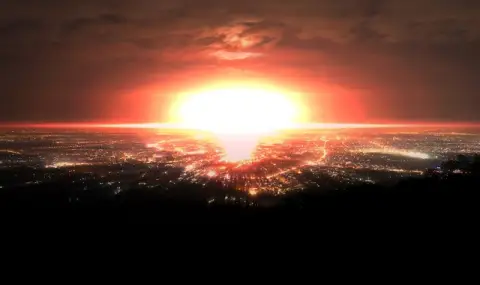79 years ago, hell descended on Earth: to force Japan to surrender at the end of World War II, the US dropped two atomic bombs on Hiroshima and Nagasaki. Why do they choose them?
The date August 6, 1945 changed history forever. Because this is the day when the American B-29 bomber dropped on the Japanese city of Hiroshima a weapon with unprecedented power. The bomb “Kchugana" killing tens of thousands and causing damage still visible today. This is the second explosion of nuclear weapons in general, after less than a month before - on July 16, 2024 - the project “Manhattan" reaches its emanation with the successful nuclear experiment in the American state of New Mexico. He remained in history with the code name “Trinity".
Why exactly Hiroshima and Nagasaki?
Only three days later - on August 9 - an atomic bomb was also dropped on the city of Nagasaki. However, the choice of which locations to bomb was preceded by serious debates in a specially formed commission in the US.
"Hiroshima is a compact city," explains historian Alex Wellerstein. "If you drop a bomb like that in its center, you'll destroy almost the entire city." This is exactly what happens - a large part of the city, which is also an industrial center, is destroyed, and over 100 thousand people lose their lives.
However, Nagasaki is not on the list of potential targets at all. A few weeks before the bombing, Kyoto, which had been the capital of Japan for over 1,000 years, was discussed in its place. The city seems like the perfect place for the Americans to demonstrate to the world the destructive power of atomic bombs and effectively end World War II. Kyoto is not only a religious center with over 2,000 Buddhist temples and Shinto shrines, but it is also a student center. The military insisted that Kyoto be hit, but after serious debate, Secretary of Defense Henry Stimson ordered the city removed from the list.
What led to this decision is up for debate, but as the BBC notes
, the most likely reason is the fact that Kyoto has too much cultural and historical importance. Later in his diary, Stimson wrote that President Truman agreed with him that if Kyoto was destroyed, it would be extremely difficult for the Americans after the war to bring Japan back into their sphere of influence and the country would not look to the Soviet Union. Stimson himself visited Kyoto several times in the 1920s.
"If nuclear weapons exist, they will certainly be used again"
To this day, however, Japan keeps the horrifying memory of the bombing. On the 79th anniversary, Hiroshima Governor Hidehiho Yuzaki called on world leaders to dismantle their nuclear arsenals. "If nuclear weapons exist, they will certainly be used again someday," Yuzaki said in his address from the Peace Memorial Park in Hiroshima.
"Abolition of nuclear weapons is not an ideal to be achieved in the distant future," he added. “Instead, it is an urgent and real issue that must be urgently addressed at this time, as the nuclear issue is associated with an immediate risk to the survival of humanity." In his speech, Hiroshima Mayor Kazumi Matsui mentioned the wars in Ukraine and Gaza, which “take the lives of countless innocent people and destroy normal life".
"These global tragedies deepen mistrust and fear among nations and reinforce the view that solving international problems must rely on military force, which we should reject." Since the beginning of full-scale Russian aggression against Ukraine, Russian President Vladimir Putin and other Russian politicians have repeatedly made direct or indirect threats to use nuclear weapons against the West.
